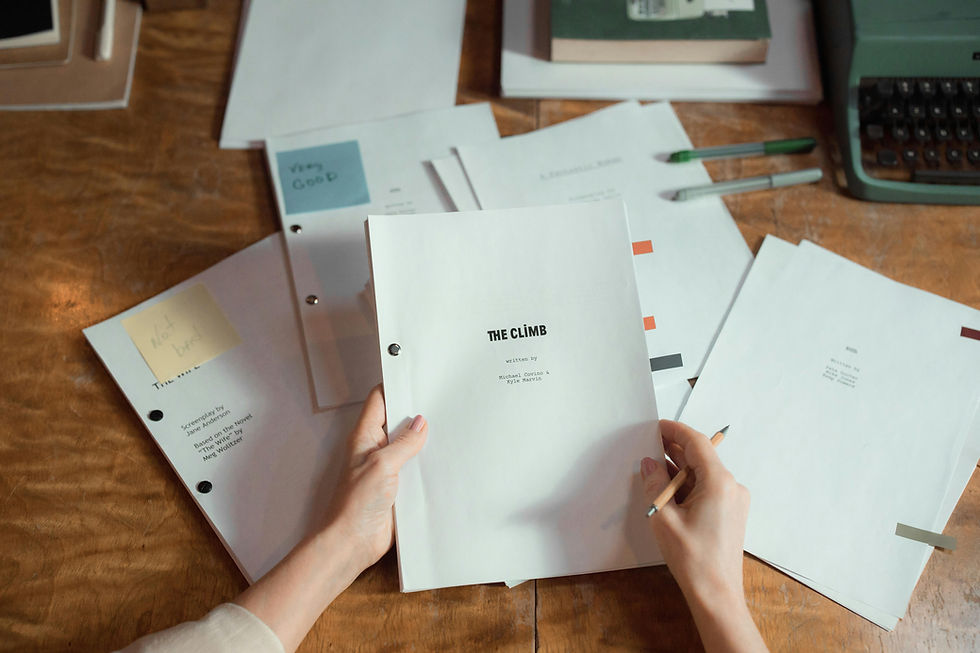Editing 101: Editors Shape Your Story from Draft to Final Polish
- Janeth
- Jun 2, 2025
- 2 min read
Meta description:
So you’ve finally typed “The End” on that novel you’ve been pouring your heart into. First of all, huge congrats! That’s no small feat. But now you’re probably wondering…what’s next?

Whether you’re planning to self-publish or pitch your manuscript to a traditional publisher, the smartest move you can make right now is to get your work edited. Think of editing as the sculpting phase—your story is the beautiful statue hiding inside a block of marble. And a good editor? They’re the one with the chisel, helping you reveal the masterpiece underneath.
Editing doesn’t just clean up your grammar. It brings out the best in your story. It sharpens your voice, strengthens your message, and makes your book shine. And if you’re self-publishing, having a professional editor in your corner is especially important. Traditional publishers usually have in-house editors, but indie authors? You’ve got to build your own dream team. And trust us, the right editor can make all the difference.
Now, when most people hear “editing,” they immediately think of grammar fixes and typo hunts. That’s part of it, sure, but editing is actually a multilayered process, with different types of editors for different stages of your manuscript’s journey.
Let’s break it down:
Developmental Editing (aka Content Editing): This is the big-picture stuff. A developmental editor dives into your plot, characters, pacing, and structure. They’ll help you figure out what’s working, what’s not, and how to make your story stronger overall.
Line Editing: Once the story structure is solid, a line editor steps in to polish your prose. They focus on how your story flows, trimming awkward phrasing, cutting repetition, and making sure your voice comes through clearly and beautifully.
Copy Editing: This is where grammar, spelling, punctuation, and consistency get a thorough check. A copy editor also keeps an eye on formatting, fact-checking, and making sure things like brand names and capitalizations are used correctly throughout.
Proofreading: This is the final pass before your book goes out into the world. A proofreader catches any lingering typos or layout issues that might’ve slipped through the cracks during production. It’s the last line of defense before publication.
If all of this sounds a little overwhelming, don’t worry. Editors aren’t here to rewrite your story or take away your voice. They’re here to help you tell your story in the clearest, most compelling way possible. Even the most seasoned writers need a second (or third) set of eyes. After spending so much time with your manuscript, it’s easy to miss small errors or inconsistencies. That’s where an editor’s fresh perspective is invaluable.
Looking for professional editing help? Our expert team has your back! We've got the skills and experience to help your manuscript reach its full potential. Send your manuscript to themanuscripteditor.com for a complimentary 800-word sample. We can help you bring your book to life!








Comments